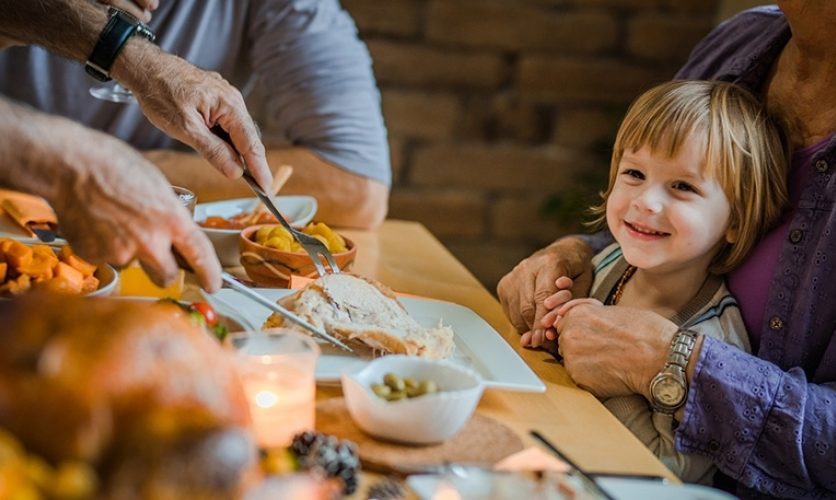Healthy Coping with Holiday Stress
As we embrace the hustle and bustle of the hectic holiday season, the concept of a happy holiday comes with high expectations. For many of us, there’s also an added pressure we may put on ourselves and others to make up for the time we lost with extended family and friends during the pandemic to have the best holiday together… like the way it used to be. Before the pandemic, we wrote about coping with the pressure of idealizing family holidays, especially for those families touched by substance use disorder. This year, it’s important to plan for how to handle holiday stress and develop self-care strategies.
It comes down to managing our expectations, embracing flexibility, setting boundaries and being prepared. Here are some approaches that might help.
Embrace Change
Think of how much you have changed in the past year and a half. Your friends and family have been through similar challenges, and they may no longer play the same roles or align with your expectations. Dynamics may have shifted and most of us are out of practice when it comes to visiting with extended family.
Plan a Self-Care Routine
Given the scenario I just mentioned, it’s important to plan what your self-care will entail. You may want to consider keeping visits shorter if that supports emotional balance or excusing yourself to go to your guest room or hotel earlier, so you have downtime to decompress. We’re still coming out of an extended period of hypervigilance, so it’s important to prioritize your needs to avoid helpless rage or putting yourself in a position where you are vulnerable to unhealthy behavior.
Communicate Your Expectations
People seem to communicate their needs more effectively at other times of the year, but somehow the holidays add an extra level of intensity and pressure to family gatherings that makes communication difficult. None of us are mind readers, yet we often expect people to intuitively know our needs and expectations. It’s unfair to our friends and family to hold them to our unspoken expectations, and, truthfully, we are also being unfair to ourselves, because it sets us up to be disappointed and overwhelmed. It’s okay to be specific and say you might need to leave a little earlier or step away for an hour to take a phone call from a friend.
Establish Boundaries
Setting boundaries is an opportunity to advocate for yourself and your self-care. Boundaries create a safe space – emotionally, cognitively, physically – and empower people to make healthy choices. Many people think of boundaries as a physical or temporal boundary: I’m not going to that event, I’m not willing to drive four hours to Aunt Jean’s for that holiday party, or I need to be in bed by 11 o’clock.
In fact, emotional boundaries are just as important – whether that means topics and conversations that make us uncomfortable or people who tend to trigger us. There are also cognitive boundaries, where we recognize certain patterns in our own thinking that don’t serve us well. Before going to an event have a list in your mind of the topics that are off the table – something you’re not willing to discuss. Plan your response in advance. For example, if someone says: “I heard you went to rehab last year,” you could respond, “Yes, I was going through a difficult time and now I’m taking charge of my life.”
The truth is, there is no rule that says we must put ourselves in a situation that is not good for us, and the holiday season is no exception. Practicing self-care means we have a right – a responsibility even – to consider whether participating in certain activities will bring us joy or leave us emotionally drained. The good news is that you don’t have to figure this out by yourself. Tap into your support system and figure out in advance who can lift you up when you’re down, give good feedback when you’re stuck or just offer companionship when you need it.
Be Aware of Problem Behaviors
This may be the first time in a while that you’re seeing extended family members in person. You may have kept in touch through FaceTime or other digital tools, but there is a limit to what you can see virtually. Someone you love may have developed a substance use disorder or relapsed.
Warning signs can include:
- Lack of hygiene
- Bloodshot eyes
- Arriving late and seeming disconnected
- Frequent restroom use
- Being withdrawn when typically talkative, or vice versa
- A focus on alcohol to the exclusion of all other considerations
- Disappointment or anger when alcohol isn’t being served
Be Compassionate With Those Struggling
If you do believe a friend or family member is struggling with substance use, it’s important to establish appropriate behavior as a boundary beforehand. Let them know you’re not serving alcohol during the holidays and that your home is a safe space.
If they choose not to come because they can’t drink or use drugs, or they come and are asked to leave because of problematic behavior, it’s important to have a follow-up conversation. I encourage you not to shame or blame – but instead to let your loved one know how much you care about them and ask how you can support them.
Overall, I encourage you to put recovery first, celebrate in ways that emphasize positive coping and make time for yourself and the simply joys of life. I wish you all a happy and healthy holiday season.
Related Content
Pressure at Home for the Holidays: Overcoming the Myth of…
By Erin Goodhart, LPC, CAADC, CMAT, CSAT, ACRPS, CCS, CPT Provider
Take the next step:
Start a conversation
Start with an online form
-
Caron in Pennsylvania
1-800-854-6023 -
Caron in Florida
1-800-221-6500 -
Breakthrough at Caron
1-800-213-7834





